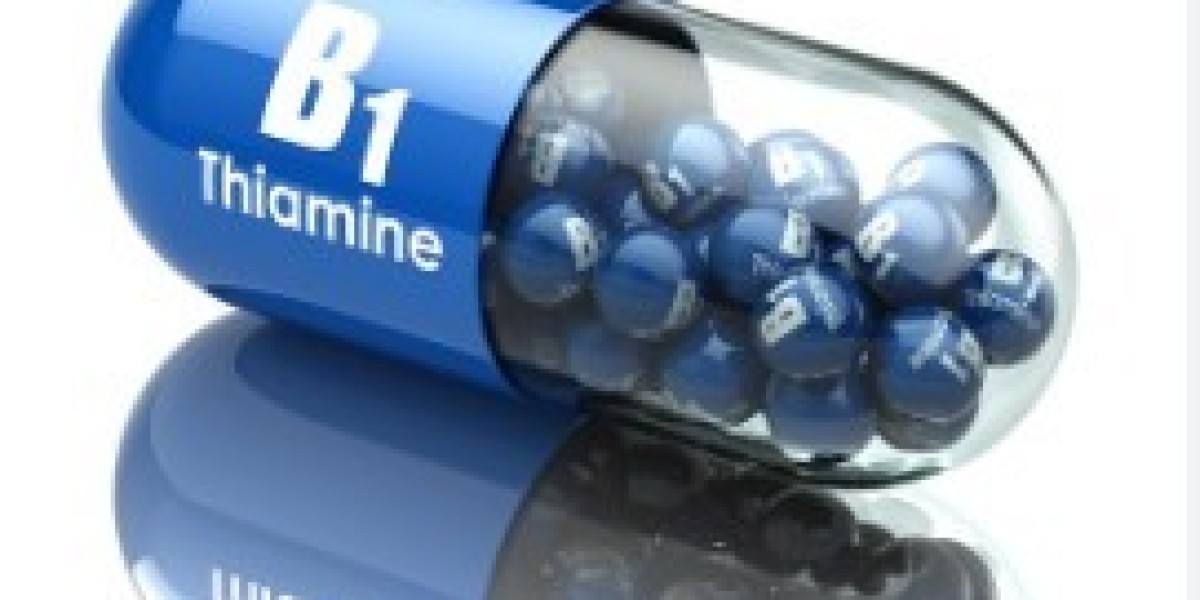In the realm of nutritional supplements, Vitamin B1, also known as Thiamine, stands out for its crucial role in maintaining optimal health. Thiamine is a key player in energy metabolism, nerve function, and the synthesis of nucleic acids. Given its importance, it's no surprise that a wide array of thiamine supplements is available on the market. This blog delves into the various forms of vitamin B1 thiamine supplements, guiding you to identify the best thiamine supplement to meet your health needs.
Understanding Vitamin B1 (Thiamine)
Before exploring the supplements, let's understand why thiamine is vital. Thiamine helps convert nutrients into energy, a critical process for brain, muscle, and nervous system function. It's also essential for the structural integrity of cell membranes. Despite its importance, the body cannot synthesize thiamine; it must be ingested through diet or supplements.
The Need for Thiamine Supplements
Various factors contribute to the need for thiamine supplements. These include dietary deficiencies, certain health conditions that impair absorption, and lifestyle choices such as excessive alcohol consumption. Supplements can help bridge the nutritional gap, ensuring the body receives the thiamine it needs.
Forms of Vitamin B1 Thiamine Supplements
Thiamine supplements come in several forms, each with its own advantages. Understanding these can help you choose the best thiamine supplement for your needs.
1. Thiamine Mononitrate
This highly stable water-soluble form is commonly used in food fortification and supplements. It's an excellent choice for those looking to improve their overall thiamine levels.
2. Thiamine Hydrochloride
Another water-soluble form, thiamine hydrochloride, is often used in liquid supplements. It's known for its quick absorption, making it a popular choice for those seeking immediate benefits.
3. Benfotiamine
A fat-soluble form of thiamine, benfotiamine is better absorbed and retained in the body than water-soluble forms. It's particularly beneficial for individuals with specific health conditions, such as diabetes, as it helps prevent complications by protecting against cellular damage.
4. Sulbutiamine
This synthetic derivative of thiamine is designed to cross the blood-brain barrier more efficiently. Sulbutiamine is often used for its potential to enhance cognitive function and energy levels.
Choosing the Best Thiamine Supplement
When selecting a thiamine supplement, consider the following factors:
Form: Decide between water-soluble and fat-soluble forms based on your health needs and goals.
Dosage: Ensure the supplement provides an adequate dose of thiamine, as recommended by health professionals.
Purity and Quality: Opt for supplements from reputable manufacturers that adhere to high production standards.
Specific Health Needs: Consider any health conditions you have that might benefit from a particular form of thiamine.
Incorporating Thiamine Supplements into Your Diet
While supplements can significantly boost thiamine levels, consuming a balanced diet rich in thiamine is also important. Whole grains, meat, nuts, and beans are excellent sources. Remember, supplements should complement, not replace, a nutritious diet.
Conclusion
Vitamin B1 thiamine supplements are vital in maintaining health and preventing deficiencies. By understanding the various forms available and considering your specific health needs, you can choose the best thiamine supplement to support your well-being. Always consult a healthcare professional before starting any new supplement regimen to ensure it aligns with your health goals and medical history.







